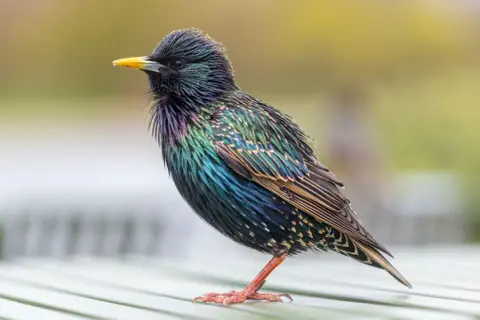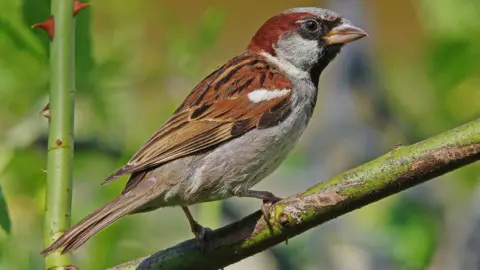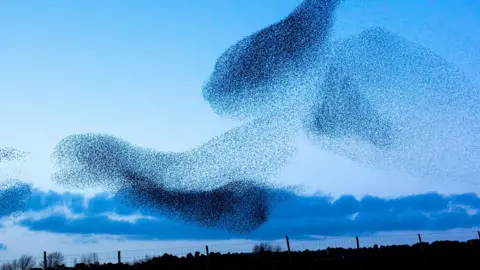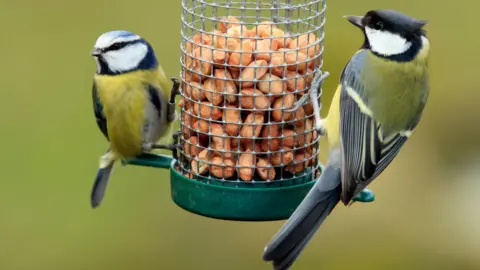 Getty Images
Getty ImagesFewer starlings are visiting UK gardens, according to the conservation charity, the RSPB.
It says its Big Garden Birdwatch, which took place over the last weekend in January, recorded the lowest number of starlings since the survey began in 1979.
Starlings are common garden visitors, but one of the UK’s fastest disappearing birds, with a sharp population decline since the 1960s.
They are known for their spectacular winter acrobatics, flying in huge flocks or murmurations.
RSPB chief executive, Beccy Speight, said though this year’s results are a reason for concern, “we can all do our bit to support these threatened birds”.
 Getty Images
Getty ImagesEmma Marsh, RSPB’s executive director, told Radio 4’s Today programme that it is a “real shame” because the starling is “one of our most charismatic birds”.
She said small actions in people’s gardens can benefit starlings and other wildlife.
These include avoiding pesticides, which reduce the number of insects around that starlings eat; having a mix of short and long grass to help starlings watch out for predators; keeping lawns natural with dandelions and clovers so there would be more invertebrates; and putting up nest boxes.
Ms Speight added: “While our homes and gardens often provide the perfect place for individual people to help, we also urgently need governments and businesses to join us in the wider fight to restore our natural world.”
 Getty
GettyAlmost 600,000 people across the UK took part in The Big Garden Birdwatch this year, counting more than nine million birds over the course of an hour in their garden or local park.
Prior to the year 2000, the starling was regularly the most numerous species recorded in the survey.
This year it dropped from third to fourth place behind the house sparrow, the blue tit and the wood pigeon.
The blackbird remained in fifth place.
 Getty
GettyThe survey gives a snapshot of trends in garden birds, with data on the starling mirroring findings from long-term studies.
Starlings are a red listed species in the UK, considered a high conservation concern due to their declining numbers.
The UK breeding population declined by 82% between 1970 and 2022.
There is not enough evidence to explain what is causing the declines, but one reason could be that there is less grassland and insect food than there used to be because of intensive farming.
Modern housing and development have also reduced the availability of suitable nesting sites.
Follow Helen on Twitter and on Bluesky.



